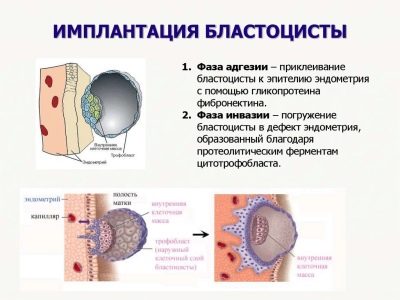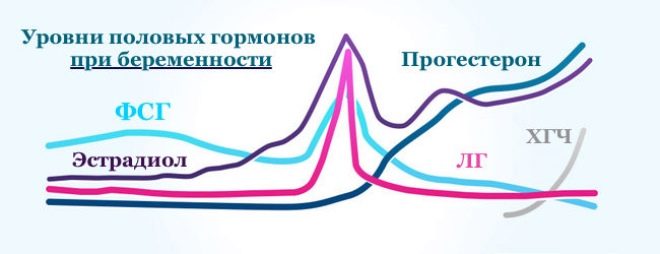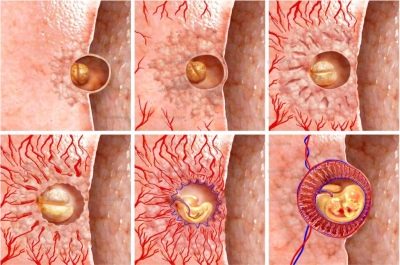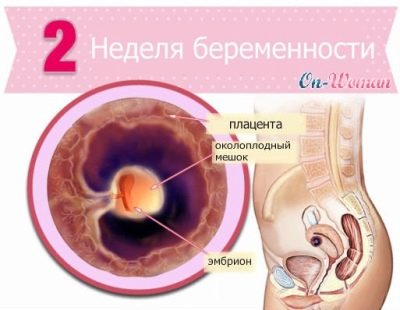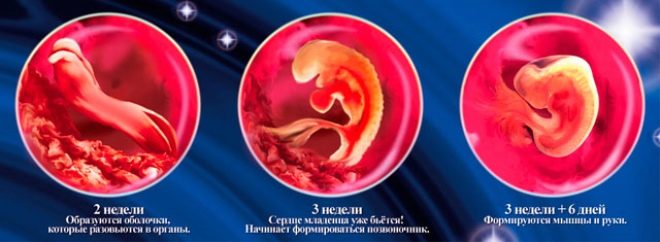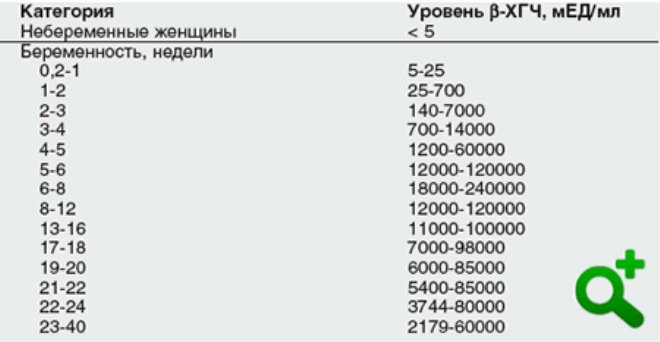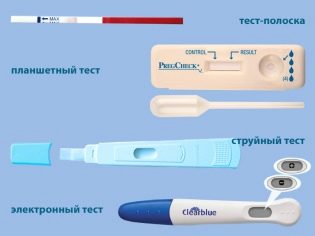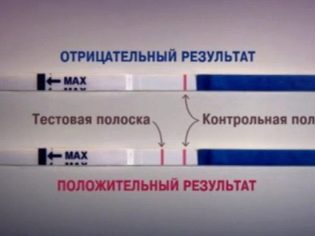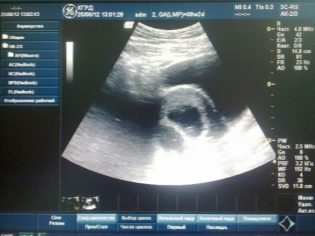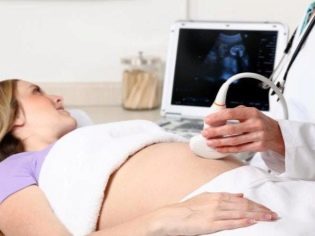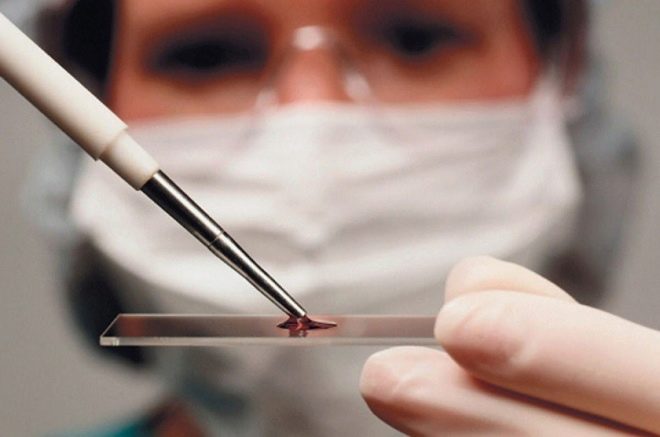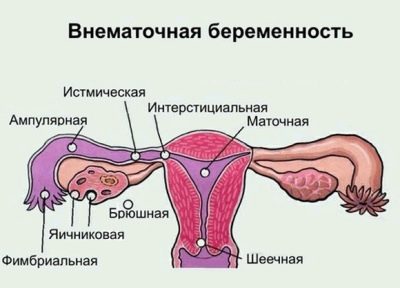2 week of gestation from the date of conception: symptoms and signs, embryo development
Two weeks after conception, a woman may still have no idea that a new life is developing inside her. However, if the child is welcome and long-awaited, by this time, thanks to modern diagnostic methods, the expectant mother can already figure it out. What happens in the second week after conception with the mother and the embryo, we will tell in this article.
What is the term?
2 week of actual pregnancy (that is, after conception) - this is already 4 obstetric week of pregnancy. Many women at the very beginning of the term of carrying a baby have confusion due to the fact that the dates set by the gynecologist in the antenatal clinic do not coincide with her own calculations. In order not to get confused, it is enough to understand that the obstetric term and the actual term (fetal) are two different things.
Obstetric term is counted from the first day of the last menstruation of the woman. Actual - from the day of conception or from the day of supposed ovulation, which usually falls to the very middle of the cycle. If a woman’s cycle is 28 days, then the conception is most likely 14–15 days, if the cycle is 30 days, then conception is most likely at 15-16 days.
Thus, 2 weeks after conception are already 4 obstetric weeks. The delay has not yet begun, several days remain until the expected next menstruation, but if conception took place, then inside the woman there are interesting and very complex processes, the first earliest signs of pregnancy may appear, which will be described below.
Note also that with a monthly delay of 2 weeks, the gestation period is 4 embryonic weeks or 6 obstetric. Now there should be no confusion. During pregnancy, the period will be measured according to obstetric standards, the date of delivery will also be counted according to obstetric standards.
Symptoms and first signs
With a long-awaited pregnancy, a woman literally every day this week is trying to find at least some signs indicating that she is now in an “interesting position.” However, let's hasten to disappoint - the symptoms may be absent altogether. Not all women at this time pregnancy somehow manifested.
Talking about unambiguous, indisputable signs 2 weeks after conception is impossible, because the main symptom is the absence of another menstruation, and the delay can only be talked about next week.
At the beginning of the second week after conception, there is an important and in many respects decisive event - the implantation of a blastocyst. After conception, which takes place in the wide part of the fallopian tube, the fertilized egg becomes a zygote. It is constantly crushed, not increasing in size, but increasing the number of smaller cells. A spherical blastocyst "arrives" into the uterus at 6-8 days after successful conception. The most important thing for her right now is to entrench the villus behind the wall of the uterus, infiltrate and begin active growth. This process is called implantation.
A woman may not feel this process, and can recognize it by some signs, which, again, are not observed by everyone. The most striking of them is the so-called implant bleeding. At the beginning of the second week, a woman can feel small pulling sensations in the lumbar region. Many regard them as precursors of menstruation. At 6-8 days after conception (or a little later, if ovulation was late), a woman may notice a slight blood-stained or bloody smear on the daily pads or underwear. This daub quickly passes.
At the same time, some women believe that there was a failure in the menstrual cycle and the next menstrual periods began earlier. But the bleeding does not increase, and the gasket will be perfectly clean the next day. If the implantation was unsuccessful (and this happens in 40% of cases), then at the end of 2 weeks after ovulation, the usual and usual symptoms of the approaching menstruation will appear, the week will end with monthly periods.
By their nature, they will not differ from the usual, so many women do not even suspect that they were pregnant.
If the implantation is successful, literally after a few hours, the cells of the chorion begin to produce a specific substance - the gonadotropic hormone, better known as hCG. Its level will increase in blood and urine gradually, “growing up” every two days. As a result, by the end of the second week it will be possible to determine it with the help of a laboratory examination of a woman’s venous blood, as well as sensitive rapid tests that can be bought at any pharmacy.
In the second week of fetal development, the woman is under the influence of the hormone progesterone. It begins to be produced immediately after ovulation, regardless of whether the conception took place. If it took place and the implantation was successful, the concentration of progesterone increases significantly. This hormone is needed to prevent the death of the embryo. It creates optimal conditions for its development - it thickens the endometrium of the uterus, inhibits maternal immunity, which may well regard the embryo as an alien object and destroy it.
Due to the decrease in immunity this week, a woman may feel a slight indisposition. HCG and progesterone in a pair can cause evening temperature rises to subfebrile values (37.0 - 37.8 degrees). At the same time, a woman in the evenings will feel a slight chill, a feeling may appear that her cheeks are “burning”. Many during this period believe that a cold has started. But in the morning the temperature returns to normal and begins to rise again towards the evening.
Many women notice that their breasts are slightly swollen, their nipples become more sensitive. But such a symptom is considered quite natural for non-pregnant women in the second phase of the menstrual cycle, therefore, it cannot be considered authentic. By the end of this week, women with a tendency to toxemia may experience its first manifestations - otherwise familiar smells and tastes will be perceived, some of them, which previously did not cause any rejection, can cause gagging, nausea. In the morning, these sensations in women usually increase.
Under the action of the hormone progesterone, the woman becomes changeable mood. Many habitually "write off" it on the premenstrual syndrome (PMS). The mechanisms of occurrence are indeed the same - in both cases, progesterone is “to blame” in an unstable emotional state. This is manifested in increased sensitivity, sentimentality, and in some places and increased irritability.
A woman can be moved to tears by the photos of the baby on the Internet, and after 15 minutes she is crying because she had time to quarrel with her work colleagues, her old friend and her husband.
From the moment of implantation, all the processes in the woman's body begin to flow more intensively, energy for all organs and systems begins to be required many times more. Therefore, a woman can feel fatigue, drowsiness, fatigue.
Progesterone, in addition to the above actions, in the earliest terms can cause an increase in appetite.So the hormone "cares" about an adequate supply of fat and nutrients for the development of the baby. A woman may notice that she almost always wants to eat.
Embryo development
Baby up to 9 weeks of gestation will be called an embryo. After this period, it will be the fruit. Now the germ is about the size of a poppy seed. It is about a millimeter in size, its weight is less than half a gram. The future son or daughter at this time looks like a rounded small berry with bubbles-pimples on the surface of a spherical blastocyst that goes into a morula. All this can be seen only under a super power microscope.
Three layers appear in the embryo structure - outer, middle and inner. Next week, the external germ layer (a cluster of cells) will begin to transform into the prototypes of the skin, hair, nervous system, brain and spinal cord. The middle germ layer will soon provide the basis for the kidneys, the heart, and the entire cardiovascular system. The inner leaflet will be transformed into the digestive organs and lungs.
Crushing of cells occurs every minute, the processes are intense. Now the whole system of extra-embryonic organs is feeding the baby. Nature also took care of them. Chorion is now needed for fixation in the uterus and synthesis of the hormone hCG. Then the chorion will turn into a placenta - the main organ of nutrition of the child throughout the entire period of gestation. Amnion will soon become the fetal bladder. It will be filled with amniotic fluid, in it it will be easy and pleasant for a child to grow and develop.
The yolk sac is now a “food store”, a little later it will resolve, since the placenta will begin to form and the nutritional functions of the growing baby will lie completely on it.
This week is considered to be one of the most important in the development of the baby. Right now the cellular prototypes of all its future organs and systems are being formed, and how the baby will be healthy and viable depends on how this process goes.
Now, in the second week of conception, the baby begins to receive oxygen. "Get" his chorion from maternal blood. Within a week, the laying of all the organs of the baby will begin. In the meantime, he simply "settles down" in the uterus, provided that he managed to gain a foothold in it.
Early diagnosis
There are several ways in which you can learn about the fact of pregnancy in this short period.
The most reliable and accurate - blood test for hCG. You can rent it at any clinic. Since this hormone begins to be produced after implantation and increases every 48 hours, the meaning of donating blood first appears only 10-12 days after ovulation. At this point, the concentration of chorionic gonadotropic hormone in the blood of a woman will exceed the “non-pregnant” threshold of 0-5 IU / ml. Thus, 3-4 days before the start of the delay, a blood test can show the presence of a pregnancy, provided that ovulation occurred on time, not delayed.
If the blood test is negative for 10-12 days, then it makes sense to repeat the examination in 2-4 days. With late ovulation and implantation, the hormone concentration will be sufficient for diagnosis. Donate blood should be in the morning, on an empty stomach, in the evening eliminating fatty foods from the diet. The results are usually ready in a few hours, such an analysis is average for Russia in the range of 300-600 rubles.
You can wait a bit and on the first day of the delay you can do a regular pharmacy rapid test. Which one to choose is the question of the family budget. Now there are the usual strips, cassette and electronic tests. But do not think that all of them, regardless of the cost, will be able to show pregnancy at the beginning of the second week. The concentration of hCG first increases in the blood, and only then traces of the hormone appear in the urine. This means that a pregnancy test, which can easily be done at home, is less informative in the early stages than a blood test.
Some tests with a sensitivity of 10-15 IU / ml begin to show a weak "ghost" of the second strip 2-3 days before the expected date of the beginning of the next menstruation, but this is not a fact. To get a more reliable result, you should wait until the end of the second week after conception. Conduct a home test should be in strict accordance with the recommended instructions for the test, without violating the conditions for the collection of urine and time to evaluate the result.
If at the end of this week the test showed a negative result, this does not mean that there is no pregnancy. If the question is fundamentally found out right now, you should donate blood for hCG.
There is absolutely nothing to do on the ultrasound at this time. Even if the conception took place, the blastocyst sank into the uterus and managed to gain a foothold in it, to see the tiny clump of cells, which in essence is your child now, neither the doctors of the highest qualification nor the most sensitive expert-grade ultrasound scanners are capable of.
The most curious women who want to quickly make sure that the pregnancy has come, should suffer another 7-10 days, and only then go to an ultrasound. Earlier, 5-6 obstetric weeks (this is 3-4 weeks from conception), it is not possible to see the embryo.
Possible problems
Despite the fact that the gestation period is still very small, problems can arise quite large. If the crumb does not take root or is rejected by the maternal organism a few days after implantation, the woman will simply have her period, possibly a little late. Miscarriage medicine is not officially considered. In this case, they speak of a biochemical pregnancy, in which, after a positive test for hCG, menstruation nevertheless occurred, the pregnancy, as the people say, “failed”.
Many factors can affect this - a genetic error in fertilization, in which the embryo is not viable, the immune response of the maternal organism, inflammatory processes in the uterus and other reproductive organs, infections, including sexually transmitted infections, viral infections, taking certain medications, alcohol, drugs .
If the test showed pregnancy and in the second week blood from the genital organs went, and the discharge differs from the usual menstruation, several blood tests should be done on hCG with a difference of 2-4 days. There is no other way to find out if the embryo is alive at this time, because it is not yet visible on the ultrasound. With a developing pregnancy, the level of the hormone will increase substantially, and if it is non-developing or interrupted, it will begin to fall.
A total error can happen at this time - the embryo will not be fixed in the uterus, where all the conditions for development exist for it, and outside of it - in the tube, in the cervix. Then the level of hCG will grow less intensively, after a week or two an ultrasound egg in the uterus cannot be detected. The diagnosis of ectopic pregnancy will be made only after confirmation of an ultrasound.
In this situation, the woman will be provided with emergency surgical assistance to extract the embryo. Doctors will try to preserve the organs of the reproductive system of the woman so that she can later become pregnant again, but this, alas, is not always possible. For example, in cervical pregnancy, it is often necessary to remove the entire uterus, and in tubal often the embryo is removed along with the tube.
If at such a short time there are symptoms of threatened miscarriage, then usually it is not possible to maintain such a pregnancy, because the fact itself is difficult to confirm, and the reasons for which the embryo does not take root are poorly studied by medicine.
Experienced obstetricians and gynecologists, relying on their own practice, argue that most often the rejection is due to the genetic inferiority of the embryo, because the baby simply cannot develop further. Nature "includes" the mechanisms of natural selection.
Recommendations
If pregnancy is confirmed at 2 weeks after conception, the woman should be more attentive to her health.If she smokes, it's time to say goodbye to the bad habit. The same prohibition is also imposed on alcohol, because right now and in the next few weeks the internal organs of the crumbs will be laid. Care should be taken pills and potions.
Better in the early stages to do without drugs at all, but if this is for some reason impossible, a woman needs urgent consultation with her doctor who prescribed medications for certain indications, about the possibility of their further use in the light of new circumstances. The fact of pregnancy is a weighty circumstance that cannot be ignored.
Normally, at this time a woman should not limit herself to pleasant pleasures - in sex, traveling. Unless, of course, there have been usual miscarriages before. When burdened history is better to observe sexual peace. Already, you should plan a balanced diet, trying to make it more fractional and balanced.
But it’s still too early to go to the consultation - the doctor will not be able to determine the fact of pregnancy during the examination, because the uterus is still small, so registration will be temporarily denied. A woman is recommended to come a little later, at about 5-6 week.
Everything that is happening now with the future mother is surprising and does not always explain. You should not even try to bring the mystery of the birth of life under the scientific bases. It is better for a woman to relax, to enjoy her new position. Nervous stress for the development of the embryo is no less harmful than alcohol and nicotine.
According to statistics, about 30% of miscarriages in the early stages are associated precisely with the experiences of the future mother. The baby will grow and amaze her every week. The main thing is to keep calm.
About what happens on the 2nd week of pregnancy, see below.



